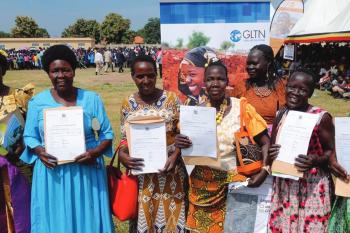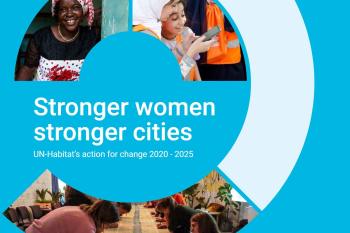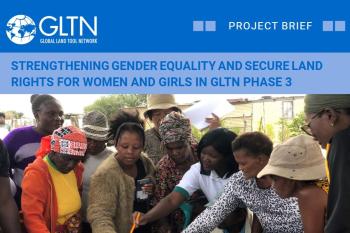
Read More
Gender Strategy for Land-at-Scale Uganda
Women’s Land Rights (WLRs) are fundamental human rights, foundational to gender equality and women’s dignity and instrumental in improving food security, effective climate action, poverty eradicati

This publication focuses on an area of significant interest to UN-Habitat: the potential of land readjustment as a tool to deliver serviced land at scale in developing countries. The potential benefits for urban development of a good land readjustment process and outcome are significant.
These benefits include land value sharing as an effective means to distribute costs, enhanced community engagement, and an enhanced capacity for authorities to reshape urban areas to meet current and future demands.
These characteristics mean that land readjustment can improve working relationships between landowners, developers and public authorities, including through public- private partnerships. Importantly for UN-Habitat, land readjustment could do this while limiting the growth of informal settlements and addressing key needs of the poor, such as adequate shelter and affordable access to the economic life of urban areas.

Women’s Land Rights (WLRs) are fundamental human rights, foundational to gender equality and women’s dignity and instrumental in improving food security, effective climate action, poverty eradicati

This publication presents a summary of UN-Habitat’s gender equality impact over the past five years, in line with the Beijing reporting cycle.

GLTN’s institutional commitment to gender equality and secure land rights for women and girls has been at the core of its work since inception in 2006.